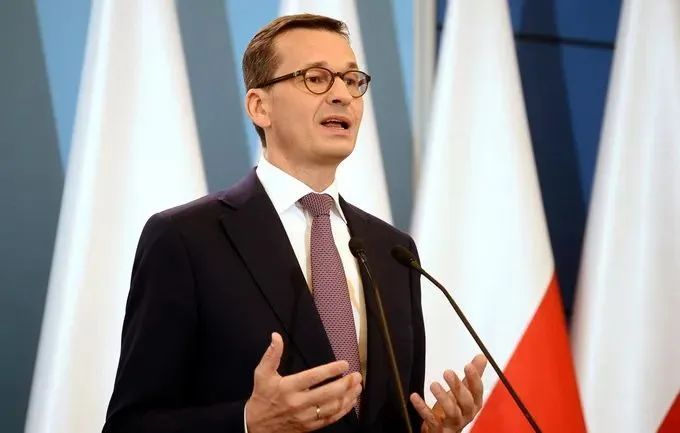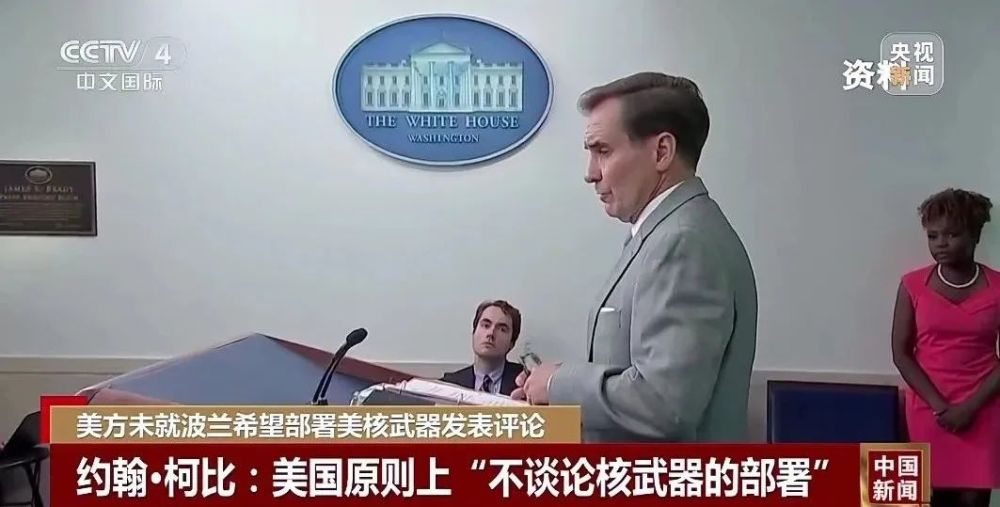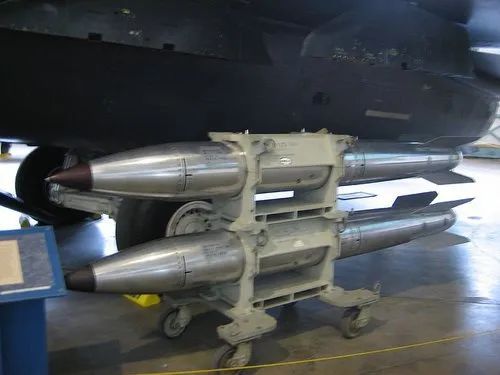Poland’s quest to deploy US nuclear weapons was met with a cold shoulder, while Jin Yinan: complacent, so that it was lost.
Polish Prime Minister Morawiecki recently told a press conference after the EU summit that he hoped to deploy American nuclear weapons in Poland, and he also called on the whole NATO to participate in the nuclear weapons sharing program. In response, Kirby, the strategic communication coordinator of the US National Security Council, responded that the United States will not discuss the deployment of nuclear weapons in Poland for the time being.So, what is Poland’s intention to join NATO’s "nuclear sharing" plan? Will the current attitude of the United States on nuclear weapons change with the evolution of the Russian-Ukrainian conflict?Please pay attention to "National Defense Time and Space"-South Military Forum.
Click to listen to "One South Military Forum"

Data Map: Polish Prime Minister Morawiecki (Source: International Online)
Li Yue: It is a direct response to the Russian deployment of nuclear weapons in Belarus that Poland publicly expresses its wish to join NATO’s "nuclear sharing" program. But in fact, this idea of Poland is not the first time, and there have been similar statements before. In September last year, Polish President Duda revealed in an interview that Poland had held talks with the United States on the possibility of joining the "nuclear sharing" program. Last October, the Polish military also participated in NATO’s "firm noon" nuclear deterrent exercise as an auxiliary role. Therefore, some media commented that Poland’s seeking to join the "nuclear sharing" program is not directly related to Russia and Belarus’ decision to deploy nuclear weapons, which is just an excuse for Poland. Professor Yinan, why do you think Poland should actively seek to deploy nuclear weapons in its own country?
Jin Yinan:First of all, a country like Poland that requires other countries to deploy nuclear weapons on its own territory is very rare in the world. I think, this kind of appeal,For a sovereign country, it is not only a shame, but also a great challenge to its national security..
Secondly, in the Russian-Ukrainian conflict, Poland has been actively and continuously providing weapons to Ukraine, playing the role of "anti-Russian Depth Charge". Poland and Russia have a history of hundreds of years, and nowPoland is eager to use the Russian-Ukrainian conflict to destroy Russia, but this is unrealistic..
Third, after the Russian-Ukrainian conflict, the United States and NATO have set up important bases to aid Ukraine in Poland, used Polish territory to provide aid weapons to Ukraine, and set up quasi-combat centers in Poland, etc.Poland feels that its status has been improved unprecedentedly, and it is a bit complacent.. Some time ago, Poland even put forward a high asking price for Germany, demanding that Germany compensate for the losses caused to Poland during World War II, which angered Germany and angered Russia this time. It can be said that Poland’s words and deeds have led to the current dilemma.
Fourth,Poland now calls on all NATO members to participate in the "nuclear sharing" plan, which is to hope that the United States will deploy nuclear weapons in Eastern Europe.These are mainly the member countries that joined NATO after 1997 or 1999. Because in Poland’s view, the old European countries, such as Germany, Belgium, the Netherlands, Italy and Turkey, have joined the "nuclear sharing" plan, while the new European countries have not, and none of the eastern European countries have joined the "nuclear sharing" plan.Poland is willing to take the lead.

Li Yue: "Nuclear sharing" is a concept in NATO’s nuclear deterrent policy. Once it is added, NATO members who do not have nuclear weapons and are not prepared to develop nuclear weapons can be allowed to use nuclear weapons, but it is the United States that can finally decide whether these non-nuclear members can use nuclear weapons. Therefore, Polish Prime Minister Morawiecki, while actively inviting the United States to deploy nuclear weapons in his country, publicly stated that the final decision on this issue lies with the United States. In this regard, the White House spokesperson did not comment at the press conference. Kirby, the strategic communication coordinator of the US National Security Council, told the media that "there is nothing to say" and the United States "does not talk about the deployment of nuclear weapons" in principle. Professor Yinan, why does the United States make such a low-key statement on this issue, and even feel that it is deliberately avoiding it?
Jin Yinan:Because this is not the first time Poland has made this request, last year it proposed that it hoped to deploy nuclear weapons in Poland. At that time, an American spokesman made it very clear that the United States would not deploy nuclear weapons on the territories of NATO members after 1997. In other words, the United States will not deploy nuclear weapons on the land of "new Europe", that is, Eastern Europe. This year, Poland made this request again, and the United States quickly responded, that is, the United States did not comment on this request and avoided the deployment of nuclear weapons. Why is this happening? Because for the United States, the tactical nuclear weapons he has deployed in Europe are completely enough, and there is no need to increase deployment. Especially in the context of the conflict between Russia and Ukraine, considering the sensitivity of the big country game, after Russia deployed nuclear weapons in Belarus, if the United States deploys them at the forefront, the situation will definitely heat up. soThe United States is unwilling to over-stimulate Russia and the situation is unwilling to develop in the direction of nuclear war.. The United States is well aware that Russia and Belarus reached an agreement on the deployment of nuclear weapons entirely because the West has continuously provided weapons and equipment to Ukraine, so Russia’s move has a strong defensive and deterrent nature. So,I think Poland’s desire to join the "nuclear sharing" program is doomed to fail..

Data Map: American B61 Nuclear Bomb (Source: Global Times)
Li Yue: According to American media reports, as of last October, the United States had deployed about 100 B61 nuclear bombs in six bases in five European countries. As the conflict between Russia and Ukraine continues to evolve, it is reported that the US military is seeking to speed up the deployment of the latest B61-12 nuclear bomb in Europe. According to NATO’s nuclear weapons sharing plan, once a crisis breaks out, these nuclear bombs will be loaded on the fighters of the participating countries of the "nuclear sharing" plan to carry out strike missions after obtaining the approval of the United States. Just last month, Russian President Vladimir Putin announced that the first batch of Russian tactical nuclear warheads had arrived in Belarus. Professor Yinan, based on the current security situation, do you think the nuclear security risks in Europe are increasing?
Jin Yinan:In fact, this risk has been clearly placed in front of all mankind. In the conflict between Russia and Ukraine, NATO is taking out its housekeeping weapon and confronting Russia on the battlefield in Ukraine in an attempt to drag Russia down through Ukraine. From providing tanks to fighter planes, it is obvious that the United States and western countries are arching fire and escalating conflicts, but what is the end of this upgrade? Medvedev, vice chairman of the Russian National Security Council, has said that if World War III breaks out, it will never start with tanks and fighter planes. His meaning is obvious.If World War III breaks out, nuclear war is inevitable. I think that under such circumstances, all parties must calm down and not unnecessarily escalate the war..
We can see that NATO is still constantly provoking the fire, and an alliance of aid fighters has been established. What will happen after that? Will there be a ballistic missile alliance? At present, Ukraine has asked the United States for assistance in ballistic missiles, which is very dangerous! If we don’t build a nuclear barrier, stop at the brink and let one side escalate the situation, will it cause an irreversible situation? At present, there is such a trend. Therefore, we believe that this situation must be prevented. We must be on high alert now, arch fire on the Russian-Ukrainian issue, and provoke those forces that fight Ukraine and Russia. Because great danger is emerging, if it is not handled well, it is likely to come in the future.
Source: Yangguang Military
Reporter: Li Yue.